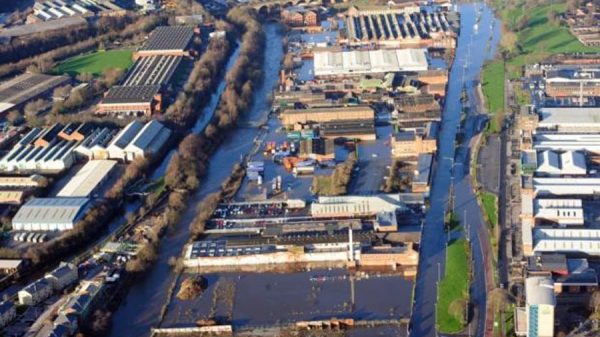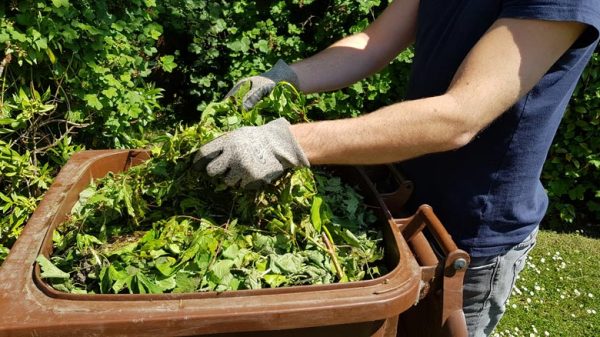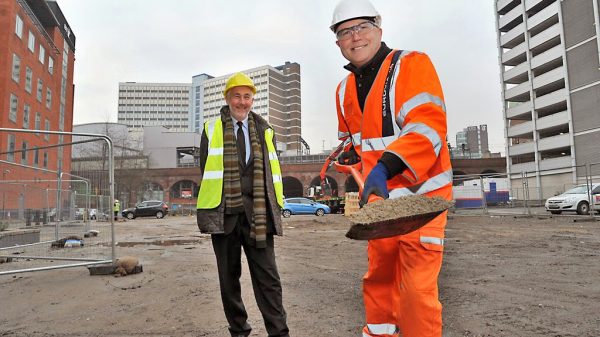A new climate change strategy is being prepared to drive forward a host of measures to help dramatically reduce North Yorkshire’s carbon dioxide emissions.
Officers from North Yorkshire County Council are working on a draft of the strategy which is set to be introduced for when a new authority is launched to cover the whole of North Yorkshire in the spring of next year.
The plan of action will set out how the new North Yorkshire Council will develop work that is already under way to reduce harmful carbon emissions, which are responsible for climate change.
The initiative is set to increase the new authority’s ability to capture and store carbon, such as through energy from waste plants, as well as placing a renewed emphasis on biodiversity and taking advantage of the huge natural resources across England’s largest county.
Members of North Yorkshire County Council’s executive discussed the proposed strategy, and a public consultation is due to be staged over the summer before a draft document is published in the autumn. If approved, the new strategy would be adopted for when the new council launches on April 1 next year.
The new strategy is aimed at achieving the ambition that North Yorkshire can become the first “carbon negative” region, helping the nation’s ultimate aim of achieving a net zero target for carbon emissions by 2050.
North Yorkshire County Council’s executive member for climate change, Cllr Greg White, said: “We want to ensure that we play our part in tackling the international climate emergency, while continuing to provide the essential services people rely on.
“As a county council we have already made great steps to achieving net carbon neutrality by, or close to, 2030 and a climate change strategy will also be at the heart of plans for the new North Yorkshire Council.
“We want to ensure all our services are contributing towards the ‘carbon negative region’ goal, that we share with district and borough councils, City of York Council, York and North Yorkshire Local Enterprise Partnership and partner organisations including community groups and businesses.
“However, we do realise that there is no simple solution to reaching that aim and there will inevitably be difficult choices in the huge task of dealing with climate change.”
Work which has already been undertaken in the county to tackle carbon emissions has been highlighted in a report to the executive. The installation of energy-saving LED street lighting, energy efficient improvements to buildings and new ways of working forced by the coronavirus pandemic, with many employees working from home instead of undertaking a daily commute, have all contributed to a reduction in carbon emissions.
Figures show that emissions are decreasing, but more will need to be done to reach an ambition to be carbon neutral by, or as close to, 2030.
The authority is embedding the aim into all local government reorganisation decisions with all eight councils. The devolution process also has the ambition to become a carbon negative region at its core.
The report outlines the possibility of decarbonising the fleet of NY Highways’ vehicles and delivering carbon reduction improvements to more buildings.
Ten electric vehicle pool cars are due to be delivered in November, with corresponding charging points at County Hall in Northallerton. An innovative pilot study is underway to provide domiciliary care workers with electric vehicles and home charging points.
The county council is also committed to engage with the community through an e-newsletter, supporting the library service to become a hub for climate change information and activity, as well as launching a youth engagement project.
Cllr White added: “There are already several examples of good practice across council services, including capital funding bids to support decarbonisation, the use of public transport and a national award for plant-based school meal provision.
“We are supporting the emerging Shared Prosperity Fund to foster the transition to a low carbon economy and the rural taskforce is also supporting areas such as energy transition and rural transport.
“This is an opportunity to recognise the great steps we have made, and look at what more we can do to achieve our aim of becoming the UK’s first carbon negative region, carbon neutral by 2034 and carbon negative by 2040.”







